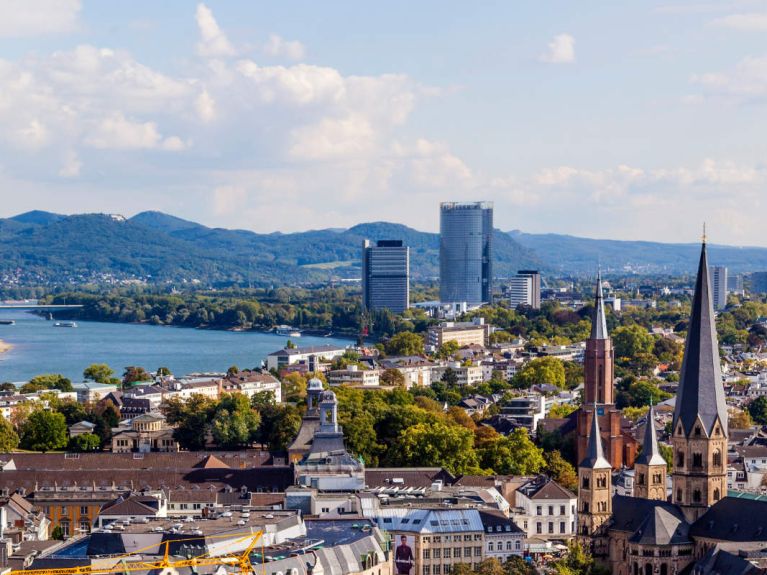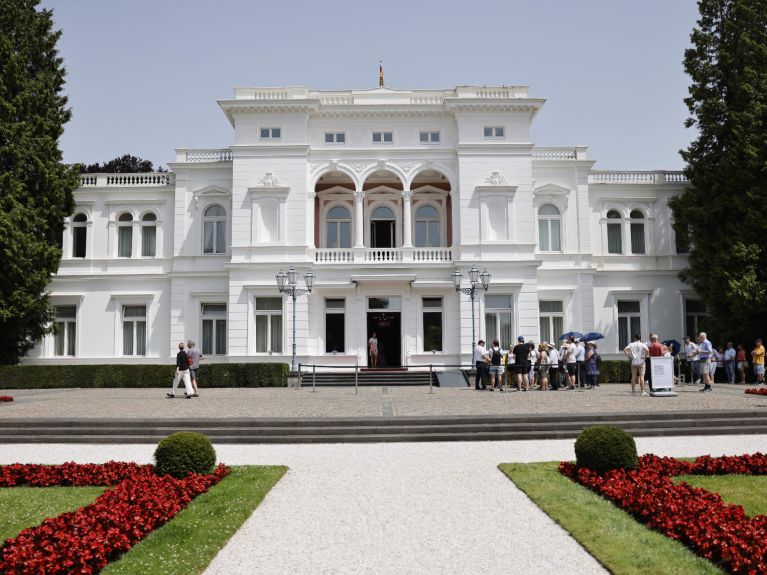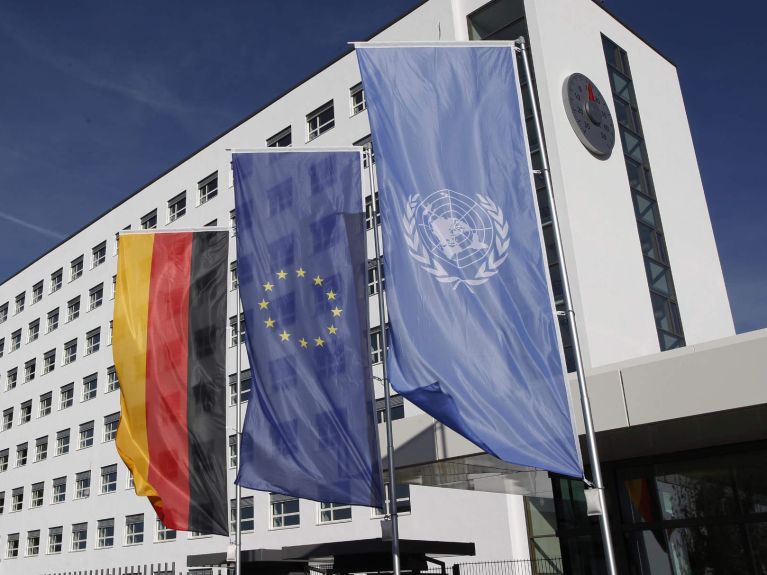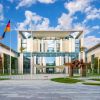Germany’s second political centre
For several decades Bonn was the capital of the Federal Republic of Germany. The city on the Rhine reinvented itself after the government relocated to Berlin.

On 20 June 1991 members of the German Bundestag spent almost 12 hours debating whether parliament and government should move from Bonn to Berlin. The vote was expected to be close, and at 9.49pm the then President of the Bundestag Rita Süssmuth announced the result: members of parliament had voted in favour of the move to Berlin by 337 to 320. It was not until 1999 that parliament and some parts of the federal government started work in the country’s new capital. The title of “Federal City” was created for Bonn, which remained the second seat of government and hence the second centre of political power in the Federal Republic of Germany.
Bonn during its period as capital of the Federal Republic of Germany
After the end of the Second World War in 1945 and the creation of the Federal Republic of Germany in 1949, the city on the Rhine was chosen to be the nation’s temporary capital. However, it was not until the reunification of Germany on 3 October 1990 that the question arose as to whether Bonn should continue to be the capital of Germany, a federal republic now numbering 16 states. The historic vote in June 1991 answered this question, narrowly favouring Berlin.
The Berlin-Bonn Law

However, not everything was to be moved, as the Berlin-Bonn Law, which was passed in 1994, required that six federal government ministries keep their headquarters in the Federal City of Bonn. Villa Hammerschmidt in Bonn was also retained as the second official residence of the Federal President, while Palais Schaumburg serves as the Bonn residence of the Federal Chancellor. The new law also moved 20 federal administrative agencies to Bonn from Berlin and Frankfurt am Main.
Bonn: Germany’s UN city

With is population of just under 350,000, Bonn is not only known around the world as Germany’s former capital, but also thanks to the two-dozen UN organisations which are now based there. These include the important UN climate secretariat, which has been housed in the new “Climate Tower” since 2022.
With the arrival of UN institutions, federal government ministries, international business HQs and scientific bodies, the former government district of Bonn has become the “Bundesviertel”, or “federal district”. Stretching 4 kilometres along the Rhine, it provides over 45,000 jobs compared to city estimates of around 20.600 jobs before the government and parliament moved to Berlin.

